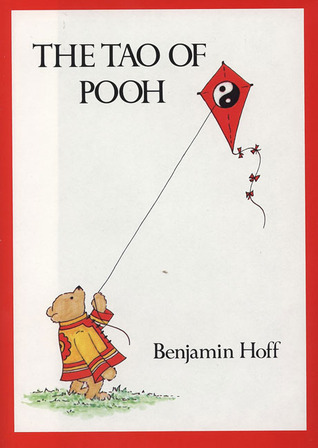Chapter 9: Nowhere and Nothing
byChapter 9: Nowhere and Nothing, In a scene from the Pooh books, Pooh and Christopher Robin are on a journey to nowhere. When Christopher asks Pooh what he likes best, Pooh responds with his love for eating, but Christopher shares that his favorite activity is doing nothing. He describes doing nothing as “going along, listening to all the things you can’t hear, and not bothering,” which is a simple but profound way to express the Taoist principle of embracing stillness and simplicity in life. This idea resonates deeply in Taoism, where peace and happiness are found in doing less rather than striving for more.
A passage from Chuang-tse further explores the concept of doing nothing. In the story, Consciousness seeks wisdom from various figures, starting with Speechless Non-Doer. However, Speechless Non-Doer remains silent, and when Consciousness asks Impulsive Speech-Maker, the response is confusing, as the speaker forgets what they were saying. Finally, the Yellow Emperor reveals that the true path to wisdom is not through action, thought, or following a set path, but by embracing “nothing.” This principle is known as T’ai Hsü in Taoism, or the Great Nothing, and it suggests that clarity and wisdom come from letting go of the need to control or overthink life.
The Taoist concept of “nothing” is also discussed in the context of happiness and clarity. The teachings of Chuang-tse emphasize that the Yellow Emperor found enlightenment not through acquiring knowledge, but by cultivating an empty mind. Similarly, Pooh’s discovery of Eeyore’s missing tail illustrates the power of an empty mind. When Owl provides Pooh with a set of complicated instructions to find the tail, Pooh simply steps outside and notices that Owl already has a new bell-rope—Eeyore’s tail. Because Pooh’s mind is uncluttered, he sees what is right in front of him, unlike those who are bogged down by knowledge and distractions. This example shows how an empty mind is more attuned to the present moment and less likely to overlook the obvious.
In Taoist art, music, and nature, emptiness plays a central role. Many people, however, associate emptiness with loneliness and fill their lives with distractions to avoid this feeling. Taoism suggests that true loneliness arises when every moment is overfilled, turning life into a “Big Congested Mess.” To truly experience life and its beauty, it is essential to leave space, much like how a beautiful painting or a calm piece of music is made meaningful through its simplicity and silence.
The concept of embracing emptiness is also reflected in the life of Emperor Hirohito of Japan. Known for his busy schedule filled with meetings and royal duties, Hirohito once smiled when no one showed up to a meeting, appreciating the emptiness in the room. This moment was his favorite appointment, illustrating how valuable empty space can be for clarity and peace. Similarly, Lao-tse taught that while knowledge involves adding things daily, wisdom comes from “removing things every day.” Chuang-tse also describes a student who reached the Tao by forgetting everything, emphasizing the power of an uncluttered mind.
The mind is naturally skilled at processing information, but its greatest strength lies in its emptiness. When the mind is free of clutter and distractions, it can be clear and focused. Often, the most innovative ideas are the ones that cannot be traced back to any specific origin, as they arise from the void of pure potential. This is why people often experience their best ideas after a restful night of sleep—when the mind has had the chance to reset and return to a state of simplicity and openness.
Contrary to the common belief that adulthood represents the pinnacle of development, Taoism asserts that the highest level of development is the independent, clear-minded, and joyful state of a child. Children embody the Great Nothing because they are naturally curious and open to the world without the constraints of overthinking or the burdens of knowledge. They see life as it is, without preconceived notions or expectations, and this clarity is what makes them truly wise. In Taoism, the most enlightened individuals are those who, like children, approach life with a sense of wonder and simplicity.
At the conclusion of the Winnie-the-Pooh books, the characters arrive at the enchanted grove known as Galleons Lap. This grove symbolizes wisdom or enlightenment in the story. The path to this place is the “path to Nothing,” which suggests that true wisdom and enlightenment do not require a long journey or external achievement. Instead, they are found within, wherever one already happens to be. By letting go of the need to search for something outside of ourselves, we discover that the peace and wisdom we seek are already inside us, waiting to be recognized.

